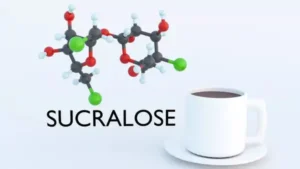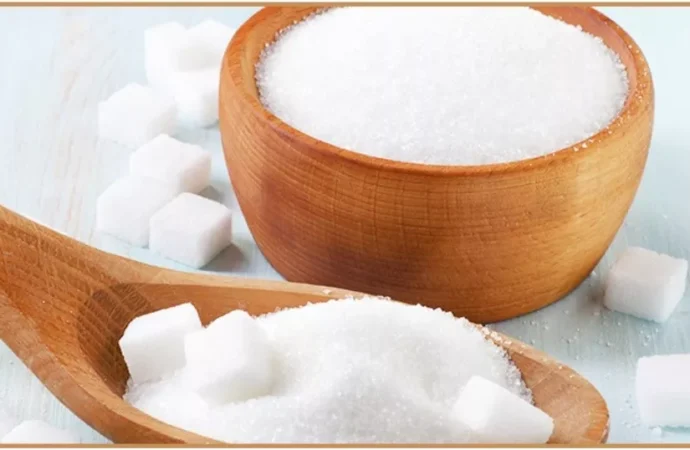Artificial sweeteners, including sucralose, have long been a staple for diabetics and those watching their calorie intake. These sugar substitutes promise the sweetness of sugar without the extra calories. Sucralose, a calorie-free sweetener found in diet sodas, baked goods, and chewing gum, is 600 times sweeter than sugar. Despite its popularity as a weight-management tool, a recent study suggests that sucralose might contribute to obesity instead of preventing it.
The Study: How Sucralose Affects the Brain

Researchers at the University of Southern California published a study in Nature Metabolism that examined how sucralose affects 75 participants with different body types. The participants drank water, a sucralose-sweetened beverage, or a sugar-sweetened beverage on separate occasions. Researchers monitored their brain activity, focusing on the hypothalamus, the part of the brain that regulates hunger.
The study’s findings raised serious concerns. After consuming sucralose, participants showed increased brain activity in the hypothalamus, indicating heightened hunger. This effect was especially noticeable in individuals with obesity. The researchers concluded that although sucralose provides sweetness without calories, it may trick the brain into thinking it has consumed calories, leading to increased hunger and overeating.
The Impact of Sucralose on the Brain
Sucralose is commonly used in products like diet sodas, baked goods, and chewing gum. While it’s known for its zero-calorie content, this study revealed that it may have unintended consequences on brain function. When participants consumed sucralose, their hypothalamus showed elevated activity, which correlated with greater hunger, especially among those with obesity. Additionally, the study found that sucralose strengthened connections between the hypothalamus and other brain regions involved in motivation and decision-making.
Dr. Kathleen Alanna Page, the study’s lead author, explained that sucralose confuses the brain. The brain expects calories when it detects sweetness, but sucralose delivers sweetness without the corresponding caloric energy. This mismatch alters cravings and eating behavior. Dr. Page noted, “When your body expects a calorie from sweetness but doesn’t get it, it changes how your brain responds to hunger and cravings.”
Sucralose vs. Sugar: Hormonal Responses
The study also examined how sugar and sucralose affect the body’s hormonal responses. When participants consumed sugar, their bodies released hormones like insulin and glucagon-like peptide 1 (GLP-1), signaling to the brain that calories had been consumed. These hormones help regulate hunger and promote feelings of satiety.
In contrast, sucralose did not trigger the release of these hunger-regulating hormones. As a result, participants who consumed sucralose did not experience the same satiety as those who consumed sugar. This absence of hormonal signals may explain why participants felt hungrier after drinking sucralose-sweetened beverages compared to those who had sugar-sweetened drinks. The lack of a hormonal response disrupts the body’s natural appetite regulation, potentially leading to overeating.
Gender Differences in Brain Activity
An intriguing aspect of the study was that women experienced more significant changes in brain activity after consuming sucralose than men. This suggests that gender may influence how artificial sweeteners affect brain function and appetite regulation. Although the study did not explore the reasons for these differences, it raises important questions about how men and women may respond differently to sucralose and similar sweeteners.
The Hidden Risks of Artificial Sweeteners
For years, artificial sweeteners like sucralose have been marketed as a tool for managing calorie intake and preventing obesity. However, this new study calls into question their effectiveness. Instead of reducing hunger and aiding weight management, sucralose may increase appetite and contribute to overeating, particularly in people with obesity. For those looking to manage their weight, relying on artificial sweeteners may not be the best strategy. While sucralose provides a calorie-free alternative to sugar, it disrupts the brain’s natural hunger-regulating mechanisms. This disruption could lead to overeating, undermining efforts to control weight.
Conclusion: Rethinking Artificial Sweeteners
This study challenges the long-held belief that artificial sweeteners like sucralose are helpful for weight management. Instead of curbing hunger, they may confuse the brain and fuel cravings. For individuals with obesity, this could lead to overeating and further weight gain.
As research continues, it may be time to reconsider the role of artificial sweeteners in our diets. While they offer a way to reduce calories, their impact on appetite and brain function suggests they may not be the ideal solution for weight management. A more balanced approach, focusing on whole foods and natural sugars in moderation, could provide a healthier way to control hunger and manage weight.
 Food Manifest
Food Manifest 


















